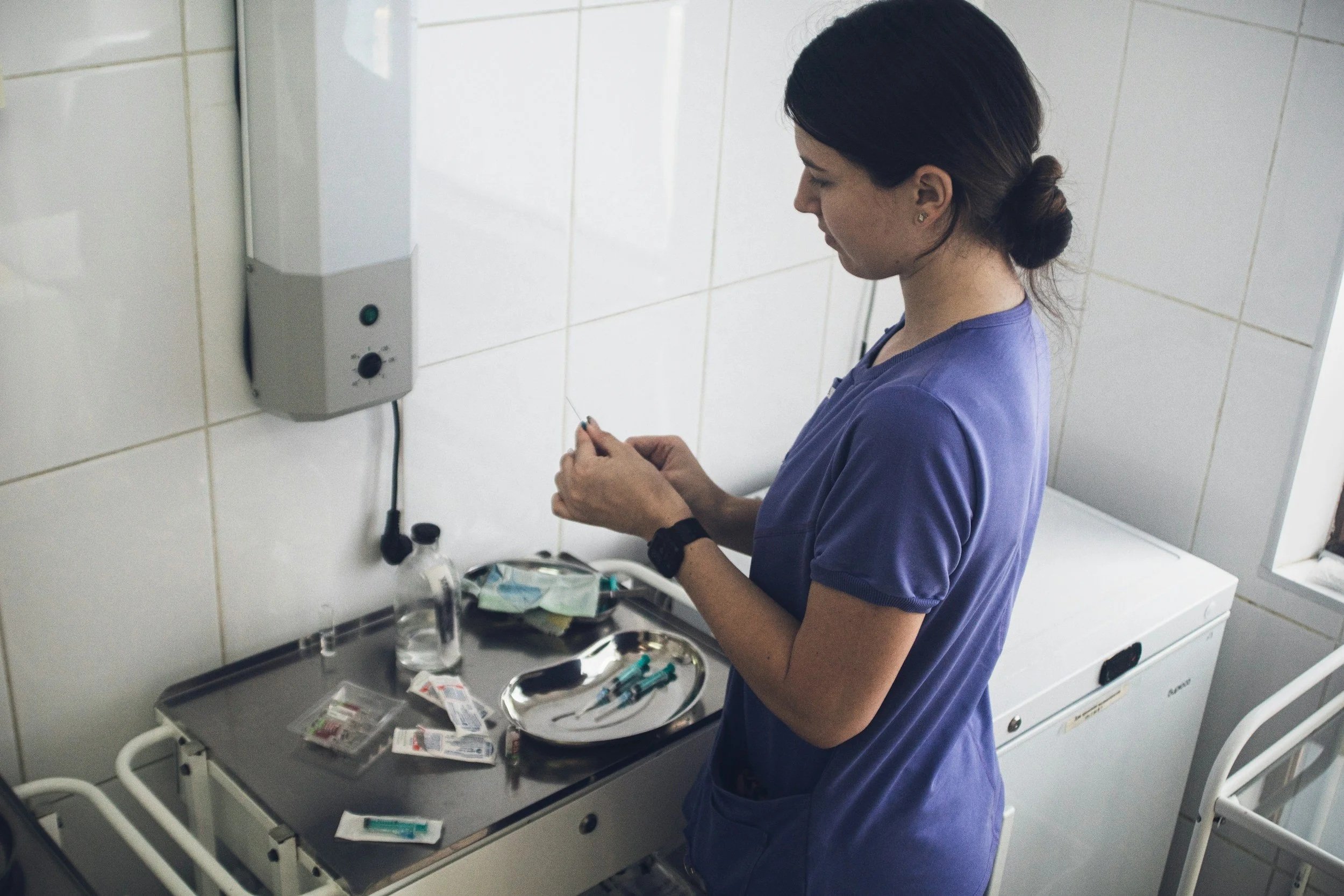Preparing for the egg freezing procedure should require attention to lifestyle choices. A balanced diet, essential supplements, and avoiding factors like alcohol and smoking are key considerations for optimizing fertility and success in the journey ahead.
Food
Maintaining a healthy, well-balanced, and nutritious diet in the period prior to undergoing the egg freezing procedure is important. Eating more nutritious food, such as meals that are rich in protein, have high fiber, and low carbohydrates can improve the chances of producing viable oocytes that are eligible for cryopreservation. Carbohydrates can cause a shift of fluid into the cells and out of the circulation, which can have dehydrating effects on the body. It is important for patients to have adequate water intake, reduce processed sugars, and get the proper vitamins and nutrients from a healthy diet.
Supplements
While most of the essential vitamins and minerals come from a patient’s regular diet, sometimes supplements can assist in filling any nutritional gaps. Physicians might recommend that the patients take prenatal vitamins, some antioxidants, vitamin C, and CoEnzyme Q10 (CoQ10). This coenzyme plays a key role in ensuring that cells receive adequate energy (in the form of ATP) while also neutralizing any free radicals that cause damage to cells, similar to what antioxidants do. The ATP levels in the body start to decline with age, so this supplement can assist in boosting ATP levels for oocytes to mature. Prenatal vitamins are formulated to contain many of the substances, such as folic acid, vitamin B12, and zinc, that protect the eggs during maturation. Vitamin C is found in citric fruits like lemons, tangerines, and oranges, but it can be hard to get enough through diet alone. Supplements can have possible interactions with food or other medications, and may alter lab results or become toxic in high doses. Supplements that have been tested by third parties are usually higher quality and are free of harmful contaminants or undeclared ingredients.
Alcohol, Smoking, and Oxidative Stress
Reactive oxygen species (ROS) are small, highly reactive, oxygen-containing molecules that are generated in small amounts in the body and interact with natural cellular processes like DNA replication, immune processes, cell repair, etc. Oxidative stress occurs when there is an imbalance between the production of these reactive oxygen species and the body’s ability to detoxify them, leading to damage in the body. Alcohol promotes the generation of ROS and negatively impacts the body’s normal defense mechanisms, especially in the liver. Alcohol has also been shown to reduce antioxidant levels, molecules which eliminate these oxidative species. Studies have shown that increased oxidative stress correlated with decreased ovarian reserves, fewer oocytes retrieved, and a lower rate of obtaining high quality embryos. While it is safe to drink alcohol in moderation during this procedure, limiting alcohol intake in the short term period prior to egg retrieval is of benefit.
Cigarettes and smoking are never recommended, but especially not during the egg freezing process as they are shown to negatively impact fertility and greatly increase the amount of toxic ROS in the body. Smoking is also shown to increase the risk of ovarian hyperstimulation syndrome, a potentially serious complication of the egg freezing process. These lifestyle factors, along with mental strain or excessive physical stress on the body, can affect egg quality during the development of the stages of the follicles and extraction. It is important that women focus on their day to day decisions in order to optimize their health for the best chance of success in this journey.

Dr. Jesse Hade is a compassionate and dedicated board-certified reproductive endocrinologist and infertility specialist with over 20 years of private practice experience. As one of the leading experts in fertility, Dr. Hade has mentored and trained many physicians currently in practice throughout the country and is an award-winning physician with numerous research studies.
Learn more about about Generation Next Fertility on Freeze.
Answered by Dr. Roy Handelsman from HRC Fertility. Understand how ovarian cysts and ovarian surgery may impact the egg freezing process.
Answered by Dr. Rashmi Kudesia from CCRM Fertility Houston. Here’s a checklist for before, during, and after your egg freezing consultation, including 11 questions you should ask the doctor.
Answered by Valerie Shafran, MSN, FNP-C from Extend Fertility. Discover why fertility experts urge women to stop taking GLP-1 agonists before an egg freezing cycle.
Answered by Dr. Nidhee Sachdev from South Coast Fertility Specialists. Explore what AMH tells us about a woman’s ovarian reserve or how many eggs she has left.
Answered by Dr. Hade from Generation Next Fertility. Understand how egg freezing does not cause long-term weight gain yet there is a chance of transient bloating.
Answered by Rijon Charne, JD from Sunray Fertility. Explore what a reproductive estate plan entails and the situations where having one can make a big difference.
Answered by Rijon Charne, JD from Sunray Fertility. Learn more about the importance of clinic disposition forms, including what they do and don’t cover.
Answered by Rijon Charne, JD from Sunray Fertility. Discover the legal nuances that can shape your options when freezing eggs or embryos.
Answered by Dr. Joshua Klein from Extend Fertility. Learn how birth control relates to egg freezing and if you will need to stop your hormonal birth control before starting the procedure.
Answered by Dr. Jesse Hade from Generation Next Fertility. Discover the important factors that affect chances of egg freezing success in your late thirties.
Answered by Sidonia Buchtova, PA-C, C-RHI from Refresh Psychiatry. Understand if you can stay on an SSRI or SNRI when freezing your eggs.
Answered by Sidonia Buchtova, PA-C, C-RHI from Refresh Psychiatry. Discover tips to help support your mental well-being during preparation, throughout the cycle, and after your egg retrieval, especially if you have a history of anxiety.
Answered by Dr. Katharina Spies from Vida Fertility. Learn about who should consider supplements before and during fertility preservation, and how supplements could support your egg freezing cycle.
Answered by Dr. Serin Seckin from Generation Next Fertility. Understand the key differences to help you make an informed decision that aligns with your personal and reproductive goals.
Answered by Dr. Ido Feferkorn from the Reproductive Medicine Group. Learn how Polycystic Ovarian Syndrome (PCOS) may affect the egg freezing process and outcomes of fertility preservation.
Answered by Dr. Meera Shah from Nova IVF. Understand the potential risks of egg freezing to help you evaluate if it is right for you.
Answered by Dr. Hade from Generation Next Fertility. Learn from start to finish the entire process of what happens on the final day of an egg freezing cycle.
Answered by Dr. Sahar M. Stephens from Northern California Fertility Medical Center. Understand the probability of pregnancy based on the number of eggs frozen and the age at which you freeze.
Answered by Dr. Alison Peck from HRC Fertility. Discover which medications are commonly used for ovarian stimulation during an egg freezing cycle.
Answered by Dr. Kathryn Snow from Piedmont Reproductive Endocrinology Group (PREG). Understand the side effects that you may experience when freezing your eggs.
Answered by Lia Schiller, MSN, AGNP-BC from Extend Fertility. Learn why IUDs can stay in place throughout the egg freezing process.
Answered by Dr. Woo from HRC Fertility. Learn how some medications need to be stopped for an egg freezing cycle while some medications can be continued.
Answered by Dr. Dan Nayot from The Fertility Partners. Learn how artificial intelligence is providing women with more information than ever before about their eggs.
Answered by Dr. Joshua Klein from Extend Fertility. Egg freezing doesn’t impact your chance of getting pregnant naturally, because egg freezing makes use of eggs that would otherwise have been lost.
Answered by Dr. Dan Nayot from The Fertility Partners. Understand the distinction between egg quantity and quality, and explore how AI is transforming egg quality analysis.
Answered by Dr. David E. Tourgeman from HRC Fertility. Understand what options exist for what to do with your frozen eggs if you decide not to use them for IVF.
Answered by Dr. Armando Hernandez-Rey from Conceptions Florida. Learn about minimal stimulation egg freezing cycles and how they can decrease the risk of ovarian hyperstimulation syndrome.
Answered by Dr. Ido Feferkorn from the Reproductive Medicine Group. Find out how egg freezing medications work and how protocols can be adjusted if you can’t take estrogen.
Answered by Dr. Ido Feferkorn from Reproductive Medicine Group. Learn how egg freezing fits into the menstrual cycle and how timing can be customized.
Answered by Dr. Elena Santiago from Vida Fertility. Understand the ins and outs of egg freezing in Spain as a non-resident, including timing, costs, and more.































